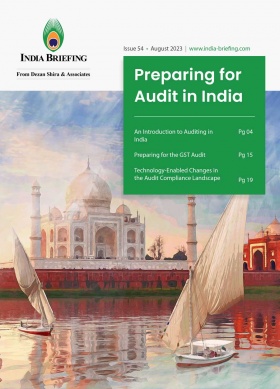India has introduced fresh rules aimed at expediting visa approvals for Chinese nationals employed in Production Linked Incentive (PLI) sectors, according to a government official speaking to Indian media.
Updated guidelines for Chinese professionals working in PLI sectors
The updated visa guidelines are expected to simplify the visa approval process for Chinese citizens, which had previously encountered delays.
The standard operating procedure (SOP), worked upon by the ministry of home affairs and ministry of external affairs, has now been circulated among those working in PLI sectors.
Why are new visa clearance rules being issued?
In a comprehensive assessment of India’s PLI program, corporate leaders urged the government to accelerate the visa issuance process for Chinese professionals. They highlighted that delays were impeding investment and hindering collaboration with Chinese experts, particularly in vendor-related matters.
Relations between India and China have stayed sour ever since soldiers from both sides clashed in the Himalayas in 2020 and, more recently, when China’s President Xi Jinping missed the G20 Summit held in New Delhi in September. Investment flows from China to India have dampened over the last two years following India’s revised FDI policy in response to the border skirmishes.
The government is also reviewing the schemes for six PLI sectors—steel and textiles, advanced chemistry cell (ACC) batteries, automobiles and auto components, high-efficiency solar PV modules, and consumer durable goods – ACs and LEDs—where the allocated budget has not been utilized.
Meanwhile, the Chinese government has temporarily relaxed provisions [effective till December 31, 2023] for Indians seeking Chinese visas for various purposes. This includes the following visa types: business (M), tourism (L), short-term family visits (Q2) to Chinese citizens, transit (G), and crew (C) visas. These applicants will be exempted from collection of biometric data (fingerprints) for this duration.
READ: India-China in 2023: Bilateral Trade and Investment Prospects
What are Production-Linked Incentive schemes?
The Production-Linked Incentive schemes are a strategic initiative by the Indian government to boost domestic manufacturing and make it a catalyst for economic growth and employment generation. The PLI program has a total outlay of INR 1.97 trillion (over US$26 billion) covering 14 key sectors, including automotive technology, ACC battery storage, steel, textiles, electronics, IT hardware, medical devices, pharmaceutical products, telecom gear, and drones, among others.
So far, INR 29 billion (US$348.17 million) out of INR 34-billion-worth claims to PLI incentives have been disbursed, benefitting eight sectors according to the DPIIT Secretary Rajesh Singh: large-scale electronics manufacturing (LSEM), IT hardware, bulk drugs, medical devices, pharmaceuticals, telecom & networking products, food processing, and drones & drone components.
All sectors approved under the PLI program adhere to a broad framework centered around new and emerging technologies. Capacity development in these areas offer India the opportunity to leapfrog and achieve substantial economic gains while also harnessing their export potential.
The core objectives of the PLI Schemes are to improve efficiency, foster economies of scale within the manufacturing sector, and position Indian manufacturers as globally competitive, thereby facilitating their integration into global value chains.
PLI incentives are based on incremental sales of products manufactured domestically and are disbursed over a specified period. The PLI program allows a gestation period for applicants to begin commercial production. Incentives are not guaranteed and are released based on annual performance and meeting stipulated criteria in the respective Scheme Guidelines.








